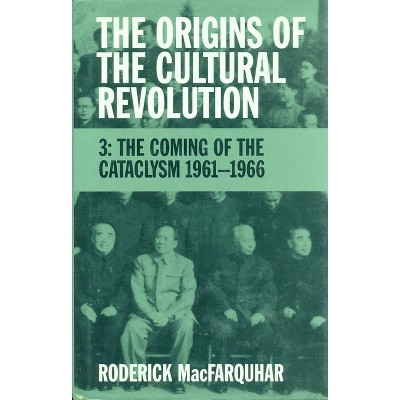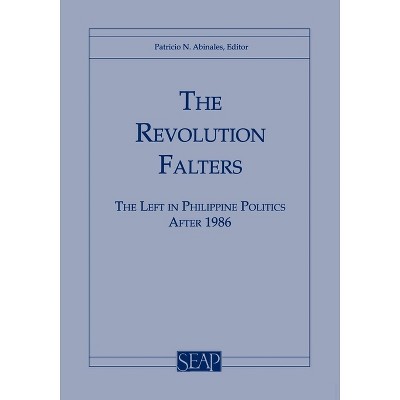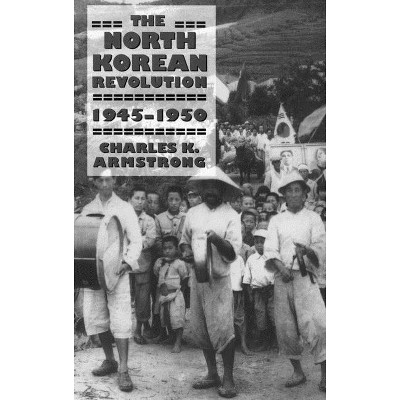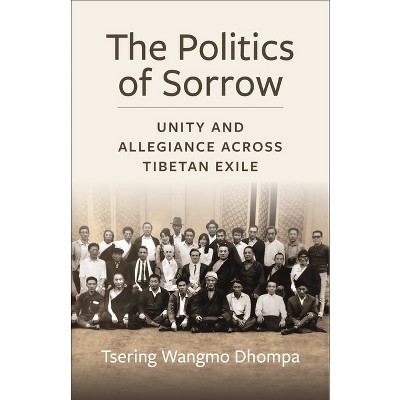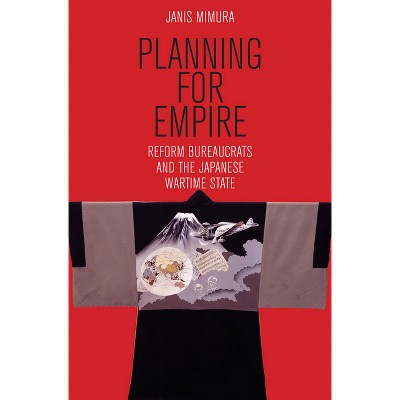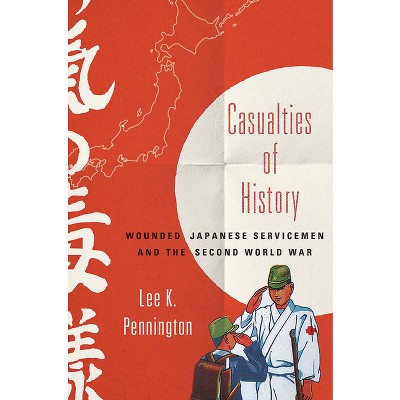The Origins of the Cultural Revolution - (Studies of the Weatherhead East Asian Institute, Columbia Un) by Roderick Macfarquhar (Paperback)

About this item
Highlights
- The second volume in a trilogy which examines the politics, economics, culture and international relations of Chines from the mid-1950s to he mid-1960s, this volume tells the story of the Great Leap Forward--Mao's utopian attempt to propel China economically and socially into the twenty-fist century by mobilizing his nation's greatest asset: its disciplined, manpower.
- About the Author: Roderick MacFarquhar, a former British Member of Parliament, is Leroy B. Williams Professor of History and Political Science at Harvard, chairman of its Government Department, and a research associate of the Fairbank Center for East Asian Research.
- 470 Pages
- Social Science, General
- Series Name: Studies of the Weatherhead East Asian Institute, Columbia Un
Description
About the Book
The second volume in a trilogy which examines the politics, economics, culture and international relations of Chines from the mid-1950s to he mid-1960s, this volume tells the story of the Great Leap Forward--Mao's utopian attempt to propel China economically and socially into the twenty-fist century by mobilizing his nation's greatest asset: its disciplined, manpower.
Book Synopsis
The second volume in a trilogy which examines the politics, economics, culture and international relations of Chines from the mid-1950s to he mid-1960s, this volume tells the story of the Great Leap Forward--Mao's utopian attempt to propel China economically and socially into the twenty-fist century by mobilizing his nation's greatest asset: its disciplined, manpower. The effort produced economic disaster and political dissension, and helped to precipitate the Sino-Soviet split. Today's leaders point to it as the beginning of two decades of national trauma, which ended only after the death of Mao and the purge of the Gang of Four. Those leaders have recently authorized the release of a mass of new documentation in the form of political reminiscences, economic statistics, and leaders' speeches. This volume is the first scholarly work to use the new material comprehensively, weaving it into the narrative along with the contemporary record and the revelations published in Red Guard newspapers during the cultural revolution. The result is the most detailed account and analysis to date of what went wrong and why.Review Quotes
"An authoritative, exhaustively researched political history.... By far the best treatment of this subject in a Western language and probably any language." -- "American Historical Review"
"An authoritative, exhaustively researched political history.... By far the best treatment of this subject in a Western language and probably any language." -- American Historical Review
"An authoritative, exhaustively researched political history.... By far the best treatment of this subject in a Western language and probably any language." -- "American Historical Review"
About the Author
Roderick MacFarquhar, a former British Member of Parliament, is Leroy B. Williams Professor of History and Political Science at Harvard, chairman of its Government Department, and a research associate of the Fairbank Center for East Asian Research.





